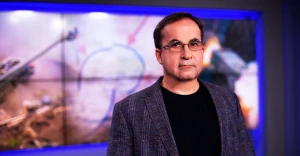
Ukrainian war correspondents speak against restrictions on some media to report from ‘red’ zones
War correspondents understand all the restrictions imposed by the Ukrainian Defense Forces and just want to do their job amid the decision to introduce lists of media that can work in the ‘red’ zones
Yevheniia Kytaieva, a military correspondent for Channel 5, made the statement on Espreso TV.
"Over these more than 9 years of war, a single organism of the military community has been formed. Now there is a situation where someone from this organism has been pulled out and added to the list, and someone has not. It is clear that the colleagues who worked with us and were on the lists were in solidarity with us. This is very valuable, because despite the fact that they can work, they still appealed to the authorities, to the Ministry of Defense, the General Staff. To people who are engaged in communication – they are building an algorithm for journalists to work at the frontline. Military correspondents at the frontline are out of politics. We understand the restrictions that the military asks us to follow. We really just want to work, because this is the only way we can help our country now," she said.
-
On February 27, Ukraine’s Ministry of Defense published amendments to the Order of the Commander-in-Chief of the Ukrainian Armed Forces No. 73 "On the organization of interaction between the Armed Forces of Ukraine, other components of the defense forces and media representatives during the martial law." It changes the rules for accreditation of journalists during martial law and introduces special zones for media representatives.
-
On March 20, the command of the Odesa operational and strategic military grouping, and the day before, the command of the Khortytsia operational and strategic military grouping, defined "red," "yellow," and "green" zones for journalists of accredited media outlets on their territories. In the "red" zone, the work of accredited media representatives is prohibited. In the "yellow" zone, you can work only if accompanied by a press officer. The list of zones is planned to be updated weekly.
-
The Media Movement issued a statement that the zoning as introduced by the operational and strategic military groups "effectively makes it impossible for journalists to work not only along the entire frontline, but also in peaceful settlements."
- News











































